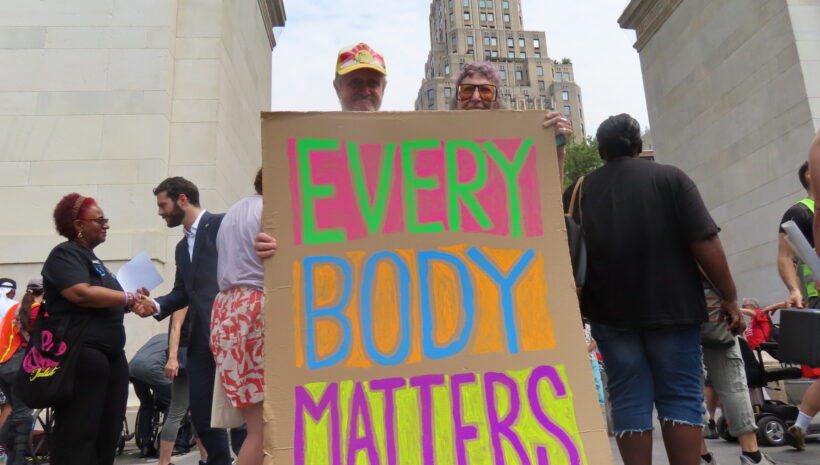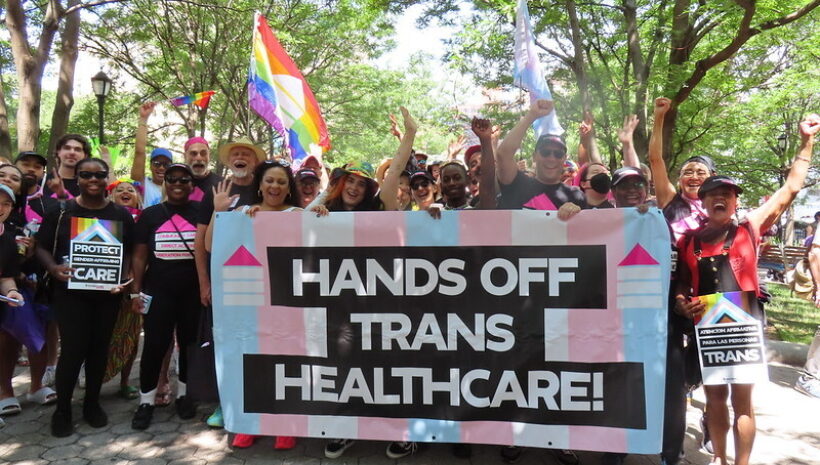Below is a report from Christine Campbell, Housing Works’ vice-president for national advocacy and organizing in D.C. Feedback or leads for this blog can be sent to editor Tim Murphy.
This week in Montreal, The National AIDS Housing Coalition and the Ontario HIV Treatment Network are hosting their North American HIV/AIDS Research Summit VII. This year’s theme is “Closing the Housing Gap in the HIV Treatment Cascade”. The meeting this week has definitely highlighted the need for a rebooted National HIV/AIDS Strategy, one that incorporates stable housing as an integral part of helping HIV-positive people connect to and stay in care, adhere to their medications, suppress their HIV to undetectable (and virtually uninfectious) levels, and stay healthy. Currently, the National HIV/AIDS Strategy recognizes the role of housing in the importance of HIV treatment but not as an HIV preventive measure.
Day one of the conference, Housing Works CEO Charles King introduced Ronald Valdiserri, U.S. Health and Human Services (HHS)’s HIV/AIDS czar, by encouraging him to move this issue forward. King talked about housing as part of a broad Housing Works effort to redesign the National HIV/AIDS Strategy toward ending the epidemic rather than just accepting HIV/AIDS as a treatable long-term illness. Valdiserri acknowledged the importance of incorporating the Treatment Cascade into the national strategy but didn’t suggest the strategy was about to reboot around the idea of ending AIDS.
From there, panel discussions showed housing’s crucial role in the HIV Treatment Continuum, or “Cascade,” which means the continuum of people in the U.S. infected with HIV who know their status (82 percent) right down to those whose viral levels are undetectable (only 25 percent). The goal, of course, is get everyone in the U.S. with HIV not only diagnosed and into care but on treatment and virally undetectable.
There was a lunch keynote address from Johns Hopkins’ Dr. David Holtgrave, and a plenary session on housing and human rights. Throughout, a recurring theme emerged: The U.S. really needs to focus on ending the epidemic, integrating into the National HIV/AIDS Strategy research showing where we need to dedicate our resources. We need to do this not only because it is cost-effective but because housing is a human right.
We heard a presentation of research by San Francisco health department’s Dr. Josh Bamberger on the importance of developing high-quality housing targeted to meet individuals needs, on the need for on-site nursing services to improve health outcomes, and on how attractive housing can decrease mortality rates. We also heard an update on research by Columbia University’s Dr. Angela Aidala showing that food and nutrition are key to health outcomes. These conclusions may be obvious, but In our evidence-based era, it’s clear we need hard research like this to make sure these interventions are included in service-delivery systems.
In sum, we were presented with a wealth of important research to support our push toward an updated National HIV/AIDS Strategy—one that will truly address ending homelessness as a method of treatment and prevention for HIV. We were reminded that we need to continue fighting this issue within a human-rights framework. I’m looking forward to what Day Two will bring, and I’ll have a report for you next Monday!




